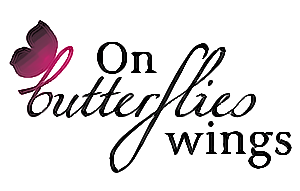By JENNIFER CORBETT DOOREN
A woman’s breast milk holds the potential to assess her risk of developing breast cancer, according to preliminary research presented Monday.
In her research, Kathleen Arcaro, an associate professor of environmental toxicology at the University of Massachusetts in Amherst, collected milk samples from both breasts of about 250 nursing women who had a previous breast biopsy or were scheduled to have a lump biopsied. In most cases the lumps were found to be benign, although cancer was found in 13 women.
Using the milk samples, Dr. Arcaro and her team of researchers isolated what are known as epithelial cells and then looked at the DNA inside them. Certain genes in some of the samples showed changes, which are known as methylation, that are thought to precede the development of cancer. A previous study conducted by Dr. Arcaro using breast milk from healthy women showed few changes in the DNA of certain genes.
The research is focusing on changes in 12 genes that other researchers have shown are involved in the development of breast cancer. Dr. Arcaro has analyzed three of the 12 genes so far.
One of the genes is called RASSF1, which is a tumor-suppressing gene. When working properly, that gene helps keep healthy cells from turning into cancer. But when substances or chemicals in the body attach themselves to the gene, or become methylated, the gene malfunctions.
Among 182 women in the study who had a lump that wasn’t cancerous, there were few changes seen in the RASSF1 gene taken from the milk of the biopsied breast compared to the nonbiopsied breast as measured by a methylation score. But among the 13 women who had cancer, there was a significant increase in average methylation score for the RASSF1 gene taken from the milk of the biopsied breast compared to the nonbiopsied breast. There was also a marginally higher score for another tumor-suppressing gene SFRP1 among the biopsied breasts compared to the nonbiopsied breasts among women in the study.
Dr. Arcaro, who presented Monday at the American Association of Cancer Research’s annual meeting, said the findings prove the concept that the cells in breast milk can be used to assess breast-cancer risk, although much more work needs to be done before a test is actually developed. The study is being funded by the Department of Defense and the Avon Foundation. Dr. Arcaro said she hopes to recruit another 250 women into the study.
About 80% of women give birth at some point in their lives so developing a cancer-risk test from milk could potentially benefit a majority of women.
Dr. Arcaro stressed that such a test wouldn’t replace conventional screening methods like a mammogram, but that it could signal which women are at the highest risk for later developing cancer and should start screening earlier. In 2009, a government task force issued a controversial recommendation suggesting most women start getting mammograms at age 50 rather than 40.
Write to Jennifer Corbett Dooren at jennifer.corbett-dooren@dowjones.com










